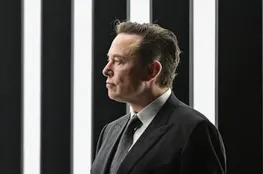Rivian, a prominent name in the electric vehicle (EV) segment, has become embroiled in a legal confrontation with Bosch, the leading global supplier of automotive parts. This clash involves a series of lawsuits where Rivian, once reliant on Bosch for e-motor supply, now accuses the supplier of causing production delays and brand damage. The roots of their dispute trace back to a 2019 agreement in which Bosch was to supply electric motors for Rivian's flagship EV models, the R1T and R1S. However, disagreements led both companies to file lawsuits over alleged breaches of contract.
In July, the legal proceedings intensified when Bosch accused Rivian of breaching their contract by failing to pay $204 million as reimbursement after Rivian decided to manufacture its e-motors. According to Bosch, Rivian's unilateral move disregarded their financial investments, which included refurbishing facilities in Germany and South Carolina to accommodate Rivian’s production requirements. Rivian countered these claims by stating Bosch's failure to meet supply commitments drastically hindered their production capacity, which fell significantly short in 2022 due to receiving only half of the necessary e-motors.
Rivian argues that Bosch's decisions were detrimental, pointing out that Bosch allegedly used lesser-trained staff and outdated technology, impacting the quality and delivery of the e-motors. These issues, Rivian claims, prompted them to take control of their production processes, a strategic shift intended to optimize costs and strengthen their supply chain independence. Despite Bosch’s assertions of its commitment to help, Rivian maintains that Bosch's actions were strategically aimed at undermining new EV startups, hoping to capitalize on their potential failures.
As Rivian develops its internal capability to produce Enduro drive units, the company is preparing to meet its 200,000-unit delivery target for 2024 independently. This move is seen as crucial for Rivian to stabilize its supply chain and protect its production timelines from external disruptions. Nonetheless, the dispute with Bosch underscores broader challenges in the rapidly evolving EV supply industry, where start-ups like Rivian navigate complex relationships with legacy suppliers. As Rivian's legal battles unfold, the company faces pressure to meet its revised 2024 production projections amid ongoing industry transformations.
























